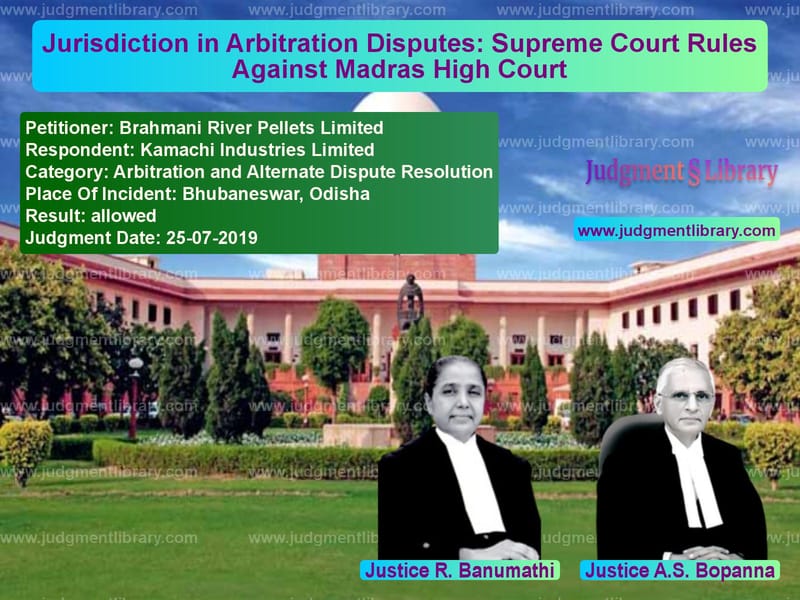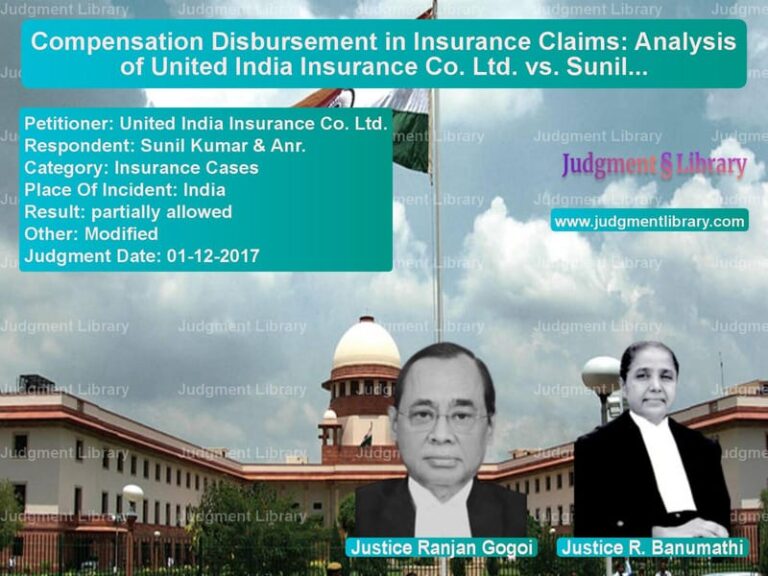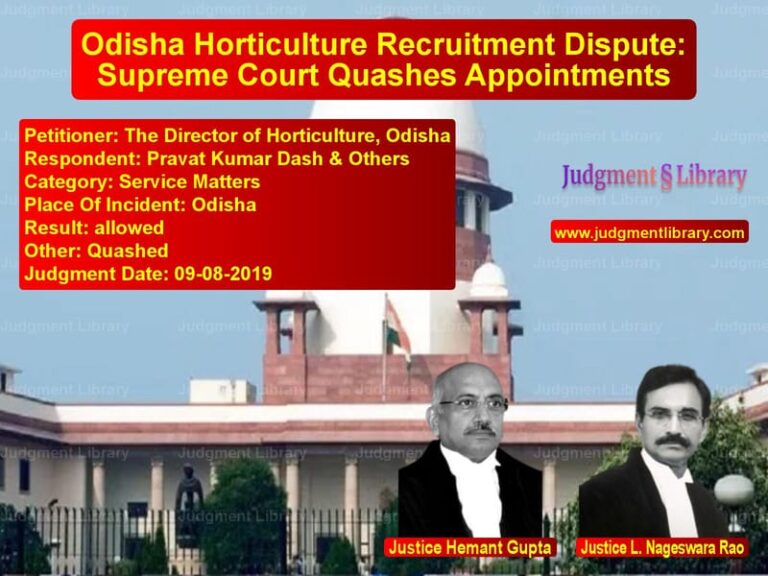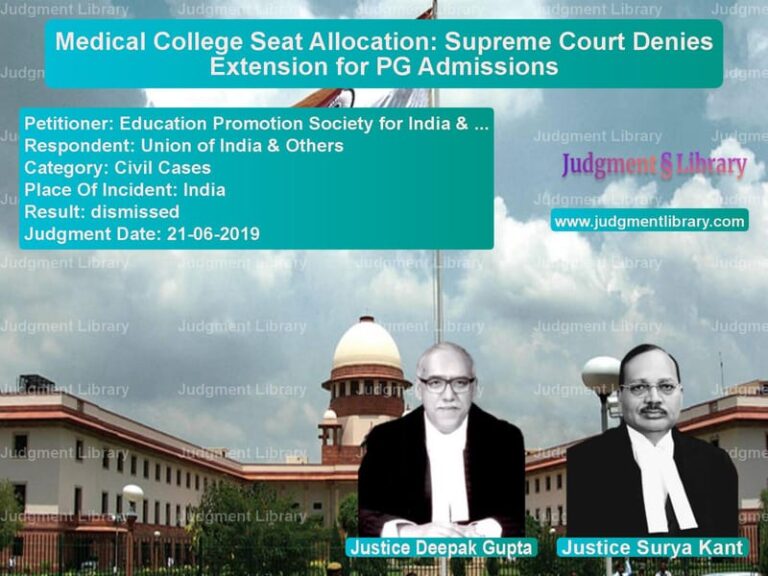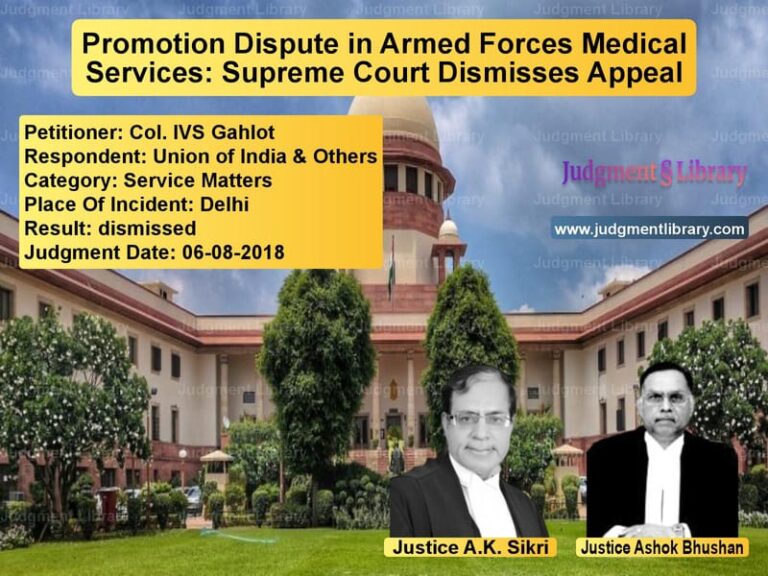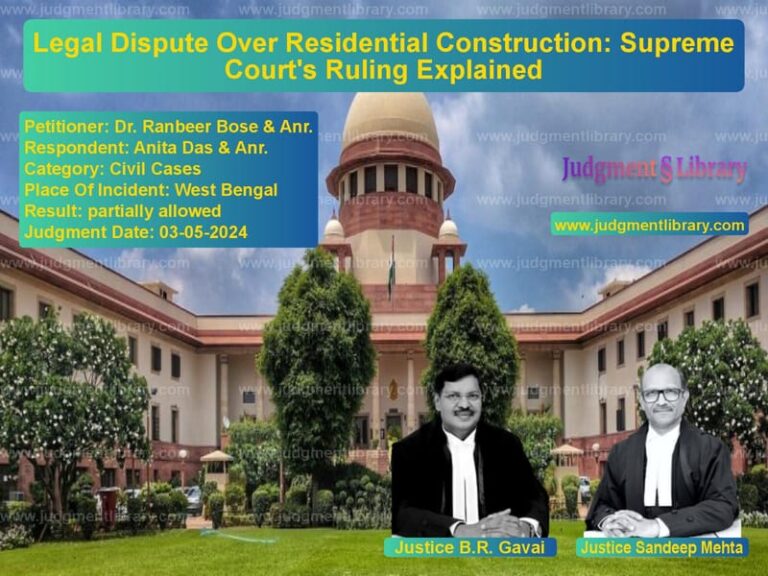Jurisdiction in Arbitration Disputes: Supreme Court Rules Against Madras High Court
The case of Brahmani River Pellets Limited vs. Kamachi Industries Limited revolved around the question of which High Court had jurisdiction to appoint an arbitrator under Section 11(6) of the Arbitration and Conciliation Act, 1996. The Supreme Court had to determine whether the Madras High Court could assume jurisdiction despite the agreement between the parties specifying Bhubaneswar as the venue of arbitration.
The dispute arose from a contract between Brahmani River Pellets Limited (appellant) and Kamachi Industries Limited (respondent) for the sale of iron ore pellets. The agreement contained an arbitration clause stating that arbitration shall be conducted under the Indian Arbitration and Conciliation Act, 1996, and that the venue of arbitration shall be Bhubaneswar. However, when a dispute arose, the respondent filed a petition in the Madras High Court for the appointment of an arbitrator, which was contested by the appellant.
Arguments of the Petitioner
The appellant, Brahmani River Pellets Limited, contended:
“When the parties have agreed upon a venue for arbitration, it becomes the seat of arbitration and confers exclusive jurisdiction on the courts of that place.”
The petitioners further argued:
- The arbitration clause clearly stated that the venue of arbitration was Bhubaneswar, making it the juridical seat of arbitration.
- The Supreme Court’s decision in Indus Mobile Distribution Pvt. Ltd. vs. Datawind Innovations Pvt. Ltd. had already established that when a seat of arbitration is specified, it excludes the jurisdiction of all other courts.
- The Madras High Court incorrectly assumed jurisdiction despite Bhubaneswar being designated as the venue in the agreement.
Arguments of the Respondent
Kamachi Industries Limited, contesting the appeal, argued:
“Since the cause of action arose in both Bhubaneswar and Chennai, both the Orissa High Court and Madras High Court had jurisdiction.”
The respondent further contended:
- The agreement did not explicitly state that only Bhubaneswar courts would have jurisdiction.
- The absence of words such as “exclusive jurisdiction” in the agreement meant that multiple courts could exercise jurisdiction.
- The High Court had correctly applied the principles laid down in Bharat Aluminium Co. vs. Kaiser Aluminium Technical Services Inc. (BALCO) and concluded that jurisdiction was not exclusive to Bhubaneswar.
Supreme Court’s Verdict
The Supreme Court, with Justices R. Banumathi and A.S. Bopanna presiding, ruled in favor of the appellant, stating that the Madras High Court did not have jurisdiction to appoint an arbitrator. The Court observed:
“When the parties have agreed to have the ‘venue’ of arbitration at Bhubaneswar, it must be interpreted as the seat of arbitration. The High Court erred in assuming jurisdiction under Section 11(6) of the Arbitration Act.”
The Court ruled:
- The parties had agreed to arbitration in Bhubaneswar, which meant that only the Orissa High Court had jurisdiction over the arbitration proceedings.
- The High Court incorrectly assumed that the absence of the term “exclusive jurisdiction” meant that jurisdiction was shared.
- The principle established in Indus Mobile Distribution Pvt. Ltd. was applicable, making Bhubaneswar the exclusive seat of arbitration.
- The order of the Madras High Court was set aside, and the parties were directed to approach the Orissa High Court for the appointment of an arbitrator.
Key Takeaways from the Judgment
- When a venue of arbitration is specified in an agreement, it is considered the seat of arbitration, giving exclusive jurisdiction to the courts of that place.
- The absence of terms like “exclusive jurisdiction” does not automatically imply that multiple courts can have jurisdiction.
- Courts must respect the principle of party autonomy in arbitration agreements.
- Jurisdictional disputes in arbitration must be resolved in accordance with the contractually agreed seat of arbitration.
This ruling reinforces the importance of honoring arbitration agreements and ensuring that jurisdictional issues do not hinder the arbitration process.
Petitioner Name: Brahmani River Pellets Limited.Respondent Name: Kamachi Industries Limited.Judgment By: Justice R. Banumathi, Justice A.S. Bopanna.Place Of Incident: Bhubaneswar, Odisha.Judgment Date: 25-07-2019.
Don’t miss out on the full details! Download the complete judgment in PDF format below and gain valuable insights instantly!
Download Judgment: Brahmani River Pelle vs Kamachi Industries L Supreme Court of India Judgment Dated 25-07-2019.pdf
Direct Downlaod Judgment: Direct downlaod this Judgment
See all petitions in Arbitration Act
See all petitions in Institutional Arbitration
See all petitions in Dispute Resolution Mechanisms
See all petitions in Judgment by R. Banumathi
See all petitions in Judgment by A. S. Bopanna
See all petitions in allowed
See all petitions in supreme court of India judgments July 2019
See all petitions in 2019 judgments
See all posts in Arbitration and Alternate Dispute Resolution Category
See all allowed petitions in Arbitration and Alternate Dispute Resolution Category
See all Dismissed petitions in Arbitration and Alternate Dispute Resolution Category
See all partially allowed petitions in Arbitration and Alternate Dispute Resolution Category

